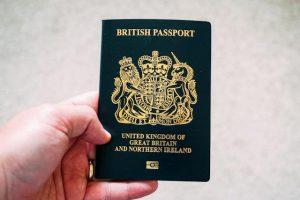For international students in UK schools, they must understand post-Brexit visa regulations.
Following Brexit, the United Kingdom has witnessed a series of substantial transformations, especially in the domains of immigration and education. One area that has experienced noticeable shifts is the procedure for international students studying in UK schools to secure their “leave to remain.”
For prospective students from overseas, getting around this can be perplexing. This article aims to shed light on the updated visa regulations and requirements for international students in UK schools, addressing the changes post-Brexit and offering guidance for those looking to embark on their educational journey in the UK.
UK Student Visa Changes Post-Brexit

Historically, the UK has been a popular destination for international students, known for its world-renowned educational institutions and diverse cultural experiences. However, with Brexit came a series of immigration changes that have impacted these students.
One of the most significant changes was the end of the free movement of European Union (EU) citizens, which included British students studying in EU countries and vice versa.
Additionally, the UK left the Erasmus+ program, an EU initiative that facilitated student exchanges across Europe. These changes have left international students, especially EU citizens, wondering about the future of their studies in the UK.
New Student Visa Regulations and Requirements

The UK government has rolled out a fresh points-based immigration system, impacting both EU and non-EU students, to ensure equal treatment for all international students. To secure “leave to remain” in the UK for educational pursuits, students are required to fulfil specific criteria.
Tier 4 Student Visa
- Offer from a Licensed Sponsor – To study in a UK school, you need a Confirmation of Acceptance for Studies (CAS) from a licensed sponsor. This sponsor is usually the school or institution where you’ll be studying.
- English Language Proficiency – You must prove your English language proficiency through recognised tests like IELTS.
- Financial Requirements – You should demonstrate that you have enough money to cover your tuition fees and living expenses.
- Tuberculosis (TB) Test – Students from some countries are required to take a TB test as part of their visa application.
- Criminal Record Certificate – You may be asked to provide a criminal record certificate, depending on your country of origin.
Short-Term Study Visa
For courses with a duration of six months or less (or 11 months for English language courses), eligible candidates can opt for a Short-Term Study Visa. While the prerequisites bear similarities to the Tier 4 Student Visa, it’s worth noting that the financial criteria may diverge.
Work Opportunities
International students in the UK are afforded a valuable benefit: the chance to engage in part-time work while pursuing their studies, with the added flexibility of full-time employment during academic breaks. Furthermore, the introduction of the new Graduate Route extends an enticing opportunity to students who have completed a UK degree.
This route permits them to enter the workforce or seek employment within the UK for two years (or three years for those holding doctoral qualifications). These opportunities significantly enhance the potential for an enriched educational journey in the United Kingdom.
Guidance for Prospective Students

Prospective students should start by thoroughly researching their desired school and course. They must ensure the school is a licensed sponsor, as this is the first and most crucial step.
When gearing up for your application, meticulous attention to detail is paramount. Verify that your documentation, including your English language proficiency test scores and financial records, is precise and current.
If you face difficulties or uncertainties during the application process, it’s wise to seek assistance from school admissions appeals solicitors who specialise in educational law. These professionals can provide invaluable guidance and support throughout the visa application process.
Choosing the Right School and Course

Embarking on the path of international education commences with a critical choice: selecting the most suitable school and course. In the UK, an array of institutions awaits, spanning from globally renowned universities to specialised schools. Aspirants are encouraged to weigh their academic passions and career aspirations when reaching this decision.
Once you’ve made the pivotal choices of a school and course, the subsequent step is to confirm that the institution holds a valid sponsorship licence for international students. The Confirmation of Acceptance for Studies (CAS) is an indispensable document necessary for your visa application, and it is typically provided by your chosen school.
Once you’ve decided on a school and course, the next step is to verify that the institution is a licensed sponsor for international students. The Confirmation of Acceptance for Studies (CAS) is a crucial document required for your visa application, and it’s typically issued by your school.
Financial Requirements
The UK government stipulates that international students must showcase their capacity to cover tuition fees and living costs throughout their academic journey. The precise financial requisites may fluctuate based on your selected school and location.
It’s essential to be ready to furnish bank statements or alternative financial substantiation to confirm your capability to fulfil these prerequisites.
English Language Proficiency

As English takes centre stage as the primary medium of instruction in most UK schools, international students must demonstrate their proficiency in the language. Acknowledged worldwide, language assessments such as the International English Language Testing System (IELTS) and the Test of English as a Foreign Language (TOEFL) play a pivotal role in this process.
Achieving a minimum score on these exams is imperative to meet the language proficiency criteria.
Tuberculosis Test
If you originate from a region where tuberculosis (TB) is prevalent, you may need to undergo a TB test as a component of your visa application. The objective of this test is to ascertain that individuals arriving in the UK are free from active TB.
Criminal Record Certificate
Some international students may need to provide a criminal record certificate. This requirement largely depends on your country of origin and the duration of your course.
Work Opportunities
One of the perks of studying in the UK is the prospect of part-time employment while you’re enrolled in your course. Throughout the academic term, you have the flexibility to work up to 20 hours per week, and during holidays, you can engage in full-time employment.
This offers international students a way to sustain themselves and amass valuable work experience.
The Graduate Route
A promising development for international students is the new Graduate Route. This route allows students who have completed a UK degree to work or look for work, in the UK for two years (or three years for doctoral students).
This is a fantastic opportunity to kickstart your career and gain practical experience in the UK.
Appealing for School Admissions

Sometimes, prospective students may face difficulties related to their school admissions. Whether it’s an issue with the application process or challenges with documentation, school admissions appeals solicitors can provide valuable assistance.
School admissions appeals solicitors specialise in educational law and can guide students and their families through the appeals process. If you find yourself in a situation where you need to appeal an admissions decision, these professionals can be your strongest advocates.
The Importance of Understanding Student Visa Regulations
Comprehending the updated visa rules and requisites for international students in the post-Brexit era is pivotal for those with aspirations to study in UK institutions. Although these modifications may appear intricate, they can be managed through thorough planning and, when necessary, seeking professional counsel.
The UK maintains its reputation as a welcoming haven for global scholars, delivering a top-tier education alongside an array of multicultural encounters. Initiating the visa application process marks the primary stride toward a rewarding educational voyage in the United Kingdom.
Whether you’re in pursuit of a Tier 4 Student Visa or need assistance with admissions, always bear in mind that with the right guidance, your aspirations of studying in the UK can turn into a reality.
Author Profile

- Editor in Chief
- Blogger and Educator by Passion | Senior Online Media & PR Strategist at ClickDo Ltd. | Contributor to many Education, Business & Lifestyle Blogs in the United Kingdom & Germany | Summer Course Student at the London School of Journalism and Course Instructor at the SeekaHost University.
Latest entries
 schoolingJanuary 23, 20265 Essential Skills for Managing Teaching Teams in Schools
schoolingJanuary 23, 20265 Essential Skills for Managing Teaching Teams in Schools Directory PostsOctober 29, 20257 Not-To-Miss UK Education Conferences in 2026
Directory PostsOctober 29, 20257 Not-To-Miss UK Education Conferences in 2026 Directory PostsOctober 16, 2025The 12 Best Online Tutoring Platforms in the UK
Directory PostsOctober 16, 2025The 12 Best Online Tutoring Platforms in the UK Directory PostsOctober 6, 2025Top 12 London Private Schools – Best Independent Schools Nearby
Directory PostsOctober 6, 2025Top 12 London Private Schools – Best Independent Schools Nearby







